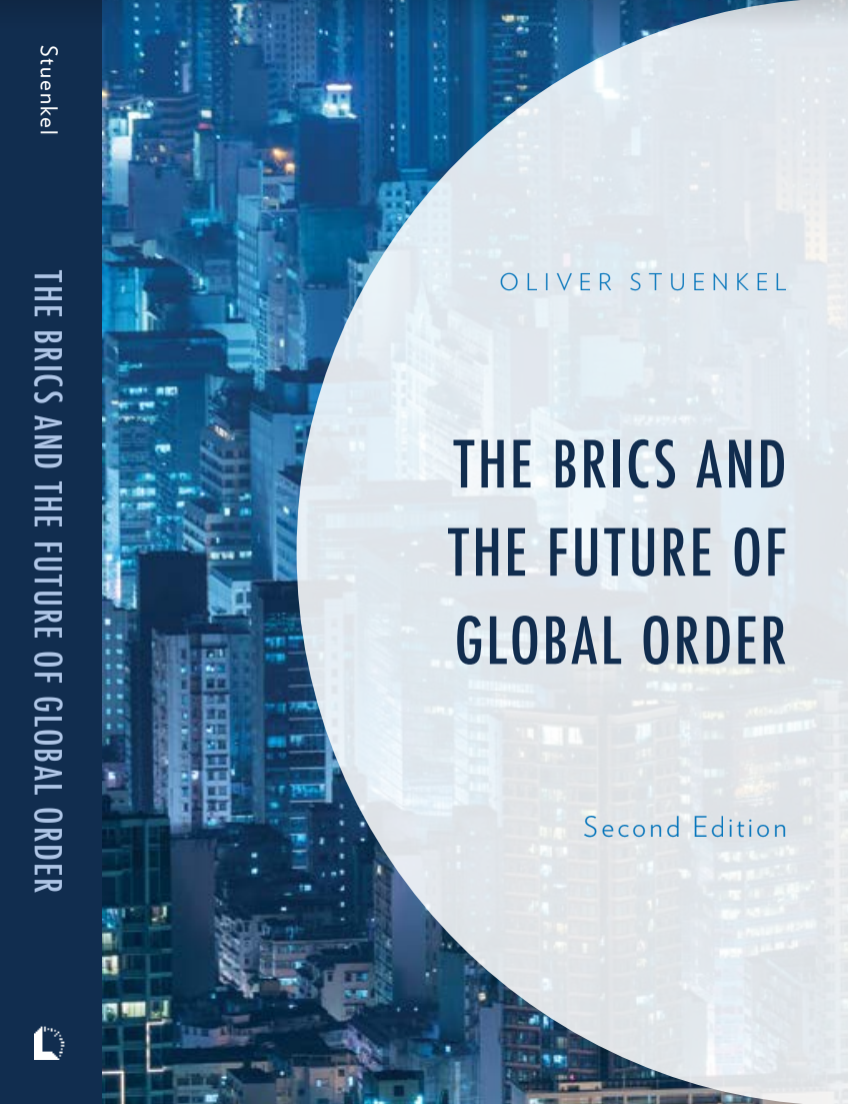Availble on amazon: https://amzn.to/2Vi3JNF
Hardcover: 272 pages
Publisher: Lexington Books; Second edition (February 3, 2020)
Language: English
ISBN-10: 1498567274
ISBN-13: 978-1498567275
The transformation of the BRIC acronym from an investment term into a household name of international politics and into a semi-institutionalized political outfit (called BRICS, with a capital ‘S’), is one of the defining developments in international politics in the past decades. While the concept is now commonly used in the general public debate and international media, there has not yet been a comprehensive and scholarly analysis of the history of the BRICS term. The BRICS and the Future of Global Order, Second Edition offers a definitive reference history of the BRICS as a term and as an institution—a chronological narrative and analytical account of the BRICS concept from its inception in 2001 to the political grouping it is today. In addition, it analyzes what the rise of powers like Brazil, Russia, India, China, and South Africa means for the future of global order. Will the BRICS countries seek to establish a parallel system with its own distinctive set of rules, institutions, and currencies of power, rejecting key tenets of liberal internationalism, are will they seek to embrace the rules and norms that define today’s Western-led order?
—–
Review by CHOICE:
In this second edition, Stuenkel (Getúlio Vargas Foundation, Brazil) presents an in-depth analysis of BRICS, an association of five emerging powers (Brazil, Russia, India, China, and South Africa), illustrating how these countries have countered Western influence in international institutions such as the UN, the World Bank, and IMF. Stuenkel’s well-balanced analysis discusses both the positive and negative aspects of intra-BRICS cooperation, particularly its views on the UN’s “Responsibility to Protect” (R2P) in Libya. As in the first edition, the book details the evolution of the BRIC acronym as a financial concept in 2001 to the present, highlighting various summits that resulted in intra-BRICS cooperation in a variety of technical areas. Moreover, Stuenkel presents readers with the complexities of this BRICS grouping, acknowledging tensions that exist among members, and in the case of Russia’s invasion of Crimea, how the actions of one member can impact the foreign policy of others. Whether BRICS will trigger a systemic change in the global order or not, Stuenkel’s analysis makes clear that the legitimacy of the current international order is undermined, and emerging powers can no longer be silenced or denied access to reshape international institutions. This well-written volume remains the sole publication providing a comprehensive historical analysis of BRICS.
Summing Up: Recommended. Lower-division undergraduates through faculty; professionals.









